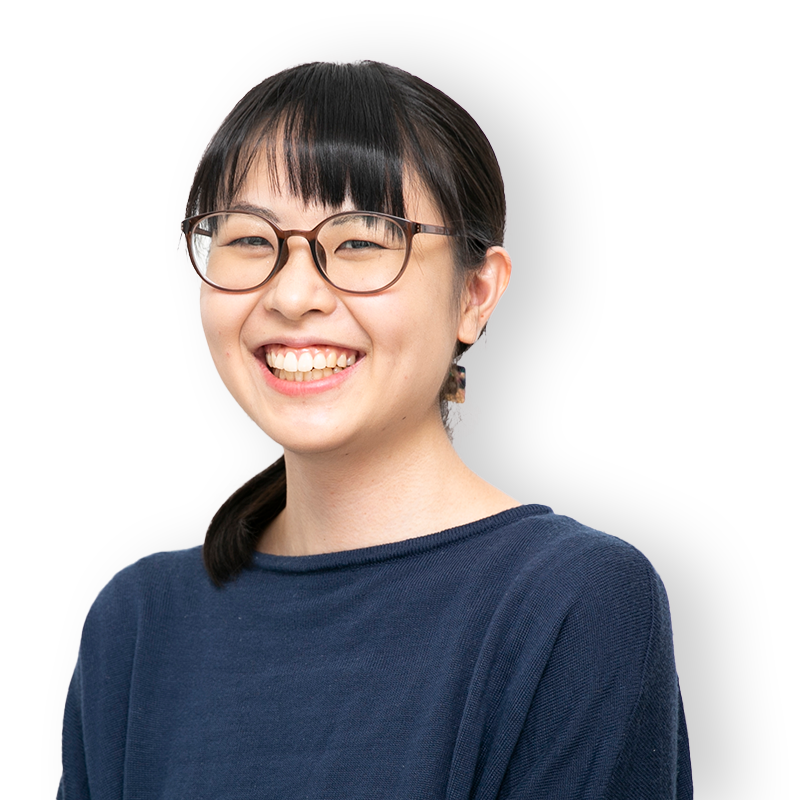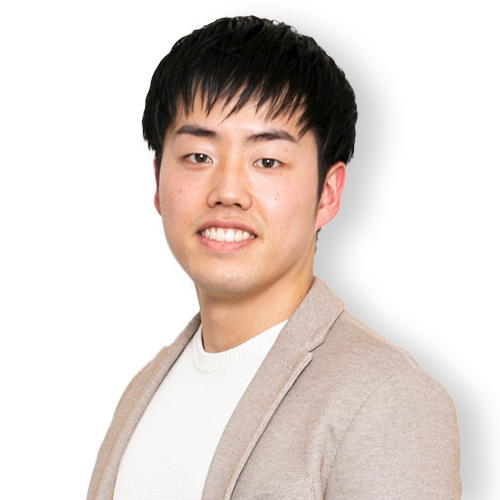Drawn to the pursuit of providing user enjoyment
I used to make card games when I was a student.
In the course of making them, I came to realize that I wanted to create a space where people could openly discuss their hobbies and interests. At university, I studied a field of design that focused on utilizing design to make the world a better place. I also researched ways to make communication more fun and enjoyable.
The most memorable experience from my job search was my time as an intern at SEGA. It was an extremely valuable experience. I got to create and present a game proposal, analyze the elements of a game, and explore what aspects make a game fun. What really stood out to me was the way the staff kept contemplating about how best to create an interesting and fun game. It left quite an impression on me.
I applied to SEGA because I felt their commitment to user enjoyment resonated with my own.
The aim of my card games was for people to have fun chatting while they played. I must admit that they weren't the most well-made games, but the experience of taking my idea from start to finish has greatly helped me in my current role as a game designer.
I even showed the interviewers some of my card games during my interview. Thinking back on it, I'm glad I never lost sight of the game I wanted to create.
All endeavors to encouraged if they'll help create a fun game
Some time after I joined the company, I was presented with the opportunity to work on a game's level design. Though I had experience creating games on my own as a student, this was my first time collaborating with others.
The senior game designers, programmers, and artists would take my ideas and fine-tune them. I vividly recall how flabbergasted I was upon witnessing the final version of my idea impeccably executed in the game; it surpassed even my wildest expectations.

What I find wonderful about the environment at SEGA is how the company's mission of "constantly creating, forever captivating" resonates with each and everyone one of us.
Creating fun games brings about moving experiences. That's why we do what we do. This mission is engrained in each and every one of us, and I believe it motivates us to up our game and churn out even more creative ideas and innovative titles.
One of the great things about SEGA is that they offer plenty of chances for new employees, like myself, to challenge themselves. As long as your end goal is focused on creating a fun game, the company encourages you to embrace any challenge that comes your way. In my view, SEGA is a company that is very supportive of its employees' endeavors.
I feel responsible for the people who work alongside me
Sometimes things don't pan out the way you want them to. But it's reassuring to know you have colleagues who will support you and help you figure out what to do next.
For example, when I tell one of my senior colleagues that there's something I want to try, we'll discuss how we should go about it. The programmers and designers will also pitch in and offer solutions if I'm ever unsure of what exactly needs to be done to make it work.

As a game designer, it's crucial for me to thoroughly consider the rationale behind my specifications and effectively communicate them to my team.
My current goal is to create entertaining game levels that will hopefully bring joy to our fans around the world. But to make this a reality, I need to work on accurately communicating my ideas and offering solid reasoning. With such a supportive and engaging environment, I feel I have a responsibility to make the most of it and challenge myself to reach new heights.
Once I have gained ample experience, it would be a dream come true for me to release a game of my own.
SEGA offers ample opportunities for its employees to grow—from building their technical skills to the way they think and communicate. Those who actively seek to improve themselves will find a wealth of opportunities for personal growth, and those who exhibit the drive to take on additional responsibilities will be afforded the chance to do so.
If you share the dream of creating a fun and exciting game, then you will no doubt enjoy working here.
*This interview was conducted during the first year of employment.
9:30 AM Work day begins by checking the status of the game and the sales made in the previous day, which I then compile into a KPI report. I check my schedule for the day afterwards.
10:30 AM Morning meeting where I present documents summarizing our sales.
10:40 AM Create specifications, consult with senior colleagues, confirm implementations, hold meetings, etc.
12:30 PM Break for lunch.
1:30 PM Create specifications, consult with senior colleagues, confirm implementations, hold meetings, etc.
3:00 PM Playtest meeting with other game designers where we play through the game, looking out for bugs. We'll also discuss the implementation schedule.
4:00 PM Create specifications, consult with senior colleagues, confirm implementations, hold meetings, etc.
7:00 PM Work day ends. Sometimes I play games online with my friends after work.

STAFF INTERVIEWS
















